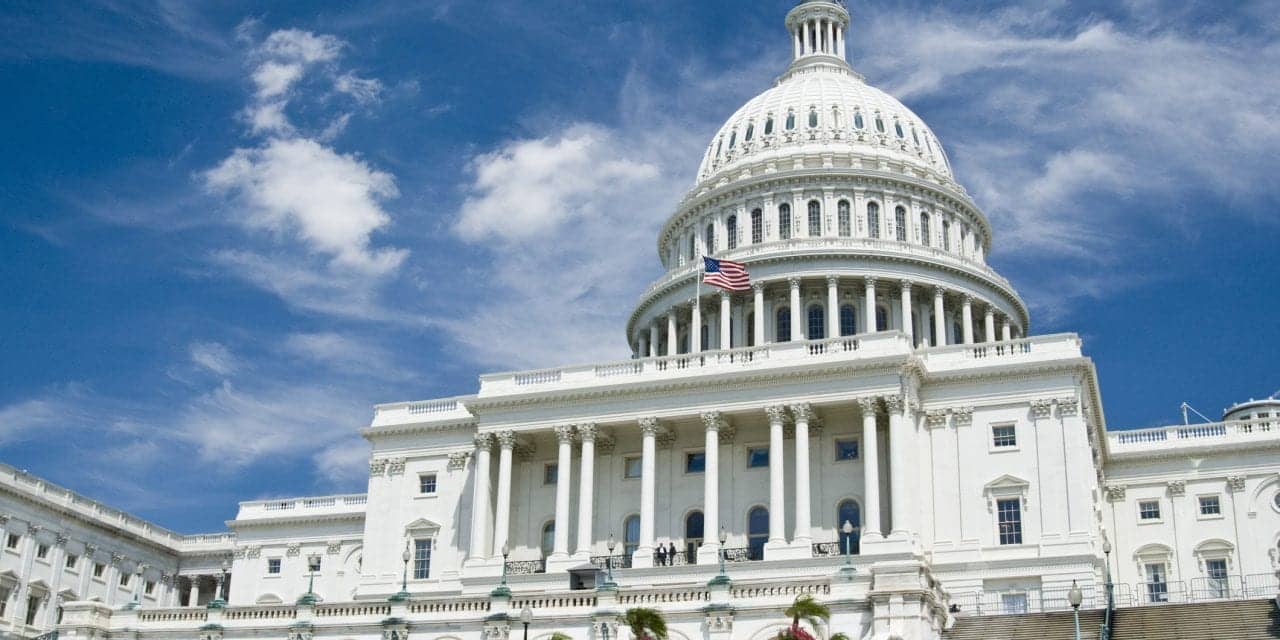The Over the Counter Hearing Aid Act (HR 1652), which was bundled as part of the Medical Device User Fee Amendments (MDUFA) package and the FDA Reauthorization Act, was passed yesterday by the US House of Representatives, as anticipated. The bill mandates that the US Food and Drug Administration (FDA) create an over-the-counter (OTC) hearing device category for people with mild-to-moderate hearing loss. Although controversy swirled around the inclusion of “moderate” hearing loss, the bill retained its “mild-to-moderate” language. The FDA Reathorization Act—with the OTC provisions—now heads to the Senate for expected passage prior to the August recess.
Passage of the bill was widely applauded by its supporters, including the Hearing Loss Association of America (HLAA) and the Consumer Technology Association (CTA). HLAA stated in a press release, “With the passage of this groundbreaking legislation Congress has sent a message to America that people with hearing loss need—and deserve—more affordable and accessible hearing health care.” Similarly, the CTA lauded the bill’s anticipated passage. “We applaud Reps Marsha Blackburn, R-Tenn, and Joe Kennedy III, D-Mass, for working with House Energy and Commerce Committee Chairman Greg Walden, R-Ore, and Ranking Member Frank Pallone, D-NJ, to successfully advance the over-the-counter provision in the broader FDA user fee legislation,” stated CTA President and CEO Gary Shapiro just prior to the bill being passed by the House. “With this kind of bipartisan momentum in the House, we are hopeful that the Senate will continue to push this legislation as expeditiously as possible.”
The actual creation of a new FDA hearing device category will almost certainly entail an arduous process, and it remains unclear how these devices will be defined. The new proposed OTC device category, which is intended to address hearing loss, should not be confused with Personal Sound Amplification Products (PSAPs) which are not intended for hearing loss. As currently written, the legislation requires FDA to regulate this new category of OTC hearing aids to ensure they meet the same high standards for safety, consumer labeling, and manufacturing protection that all other medical devices must meet. It mandates the FDA to establish an OTC hearing aid category for adults with “perceived” mild-to-moderate hearing loss within 3 years of passage of the legislation, and finalize a rule within 180 days after the close of the comment period. However, what level of safety, labeling, and consumer protections will be included are currently being hotly debated (see HR’s Special Report on the recent NASEM Committee workshop). For example, at one end, the CTA has been pushing for a logo that would signify compliance to a voluntary performance standard. At the other end, the Hearing Industries Association (HIA) has been advocating for higher levels of safety and consumer protection, as well as manufacturing and performance standards.
One of the most controversial aspects of the Act has been the language pertaining to OTC devices being used for “mild-to-moderate” hearing losses—or conceivably a hearing loss up to 70 dB, which many believe would not avail itself to a “do-it-yourself” healthcare approach. The American Speech Language Hearing Association (ASHA), HIA, and other organizations have maintained that self-directed treatment and OTC hearing aids should be recommended only for people with mild hearing loss, for whom the risks of failed intervention are outweighed by the potential benefits.
The Hearing Review has covered this legislation extensively. Some recent important landmarks in the legislation’s journey to passage in the past year include:
- In June 2016, the Committee on Accessible and Affordable Hearing Health Care for Adults, a part of the National Academies of Sciences, Engineering, and Medicine (NASEM, formerly known as the Institutes of Medicine), released its final report containing recommendations it believed will enable consumers with hearing loss to find and use more appropriate, affordable, accessible, and high-quality services, technologies, and support. The report, Hearing Health Care for Adults: Priorities for Improving Access and Affordability, contained 12 recommendations, which if made a reality, would profoundly change hearing healthcare in the United States.
- In March, the Over-the-Counter Hearing Aid Act of 2017 was introduced by the members of Congress mentioned above. Passage of the bill, which largely mirrored legislation (S9) introduced by Senators Warren and Grassley in late 2016.
- On April 18, the US Federal Trade Commission (FTC) held an important workshop titled, “Now Hear This,” which looked at myriad issues surrounding technology and competition in hearing aid distribution, as well as how OTC hearing aids might impact customer satisfaction, the use of amplification products, consumer safety, and professional care. In response to the workshop, the Hearing Industries Association published comments on 13 hearing healthcare issues that should be considered when crafting any new FTC regulations or FDA device specifications.
- In June, the House Energy and Commerce (E&C) Committee moved that legislation out of committee to await consideration by the full House.
- Also in June, the NASEM committee looked at regulations that might apply to the new OTC device category and what restrictions, including gain/output requirements and labeling requirements, the new OTC category might have.
For more articles related to this issue, click here.






At 84 years I have some hearing loss but will not participate in the hearing aid industry rip off game. As a retired electronic industry professional aware of the advances in minimization in all levels of products, it is a real shame the hearing aid industry charges 1000x the cost of their products.
The classification and degree of hearing loss should have been thought of more objectively. The chief separating feature should have been, ” the device should be worn by people who have normal speech understanding” because the complexity of hearing technology kicks in to help with cognitive changes. Hence, the potential candidate would need to understand his ability to understand spoken language as a criteria for taking a decision to wear an OTC. Obviously the kick back paid to Grassley and the Witch was the motivating factor!
Amen!
A typical republican response. Keep your petty political fights out of this most important subject. This is for helping people
Geo
Speech discrimination is a very real issue when it comes to hearing loss. This means that for some people (many people), simply increasing gain is not going to be enough to help them and without proper treatment they may become discouraged from hearing aid use due to an OTC product. So now this person may give up on amplification because it “doesn’t work” according to our societies opinion of how an aid should work. All because they didn’t have the proper discussions with the right people and assumed its faulty mechanics.
Do we close the door on a blind person as they walk in, or pick on them because they can’t read a sign- even with their glasses on? Yet the family and friends of someone with hearing loss will so freely comment on their inability to hear well and make comments about their hearing aids “not working” the moment they miss queu.
I feel that OTC may be beneficial for some, but definitely not for all. And if the population is so tough on a professionally fit aid, I am nervous to see the reaction of a store bought OTC.